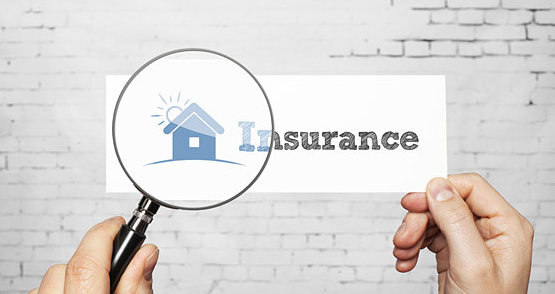 Purchasing and keeping your homeowners insurance policy is increasingly difficult these days. Premium costs are escalating at double-digit rates, many companies’ renewal policies are tightening, some companies aren’t even selling new policies in some states, and if you live in a wildfire- or hurricane-prone area, or have a history of numerous claims, getting insurance is sometimes a complicated – and expensive -matter.
Purchasing and keeping your homeowners insurance policy is increasingly difficult these days. Premium costs are escalating at double-digit rates, many companies’ renewal policies are tightening, some companies aren’t even selling new policies in some states, and if you live in a wildfire- or hurricane-prone area, or have a history of numerous claims, getting insurance is sometimes a complicated – and expensive -matter.
And that can make the whole home-buying process more difficult, especially if you’re buying your first house.
One of the biggest triggers leading to these new restrictions and rate increases is the emergence of mold lawsuits and the direction jury verdicts and judicial interpretations are taking, according to the Insurance Information Institute.
While damage from mold is specifically excluded from the standard homeowners policy, it is covered if it is the result of a covered peril, like a pipe that bursts causing water damage.
But now insurers say that if they are going to be asked, by juries and court rulings, to pay for what isn’t covered, that consumers will suffer.
“Potential rate increases needed to cover the cost of mold claims threaten to make home insurance coverage unaffordable for some and unavailable for others. A crisis in the price and availability of homeowners coverage could have far-reaching effects on home sales, and, as a result, the economy as a whole,” the III says in a topic paper on the mold issue.
Allstate has sought rate increases averaging almost 20 percent in 23 states. And State Farm, the largest home insurer in the country, has stopped writing new policies in a handful of states, including Texas, California, and Louisiana.
Another factor that may keep you from getting a homeowners insurance policy is a bad or borderline credit history.
Through the years insurers have found a person’s credit information to be a highly accurate predictor of risk, according to the Insurance Information Institute, a non-profit organization supported by the property and casualty insurance business.
While insurers look at the same factors as lenders, they weigh each factor differently. If you suspect your credit history is the reason you are denied insurance, get a copy of your credit report and make sure it is accurate. Better yet, review your credit reports before you apply for insurance or a loan.
Or perhaps your home, or one you are thinking about buying, is considered high-risk, meaning it might be prone to hurricanes, windstorms, tornadoes, or hail; is in a high-crime area; or has old plumbing, electrical or heating systems that present a higher chance of property damage.
If two or more insurers won’t issue you a homeowners policy, there are options. The I will suggests:
That if you are buying a new home to ask your real estate agent, lender, or builder for names of companies that write in the area.That if you are purchasing an existing house to ask the previous owners who insured the house.
Ask your current insurance agent or company representative for assistance. If the problem does not stem from your home’s location, but its condition, find out what you can do to remedy the problems and bring your home up to insurable condition.
Contact the Institute for Business and Home Safety for information on natural hazards, community land use and ways you can protect your property from damage. It can be reached at www.ibhs.org.
Talk to your neighbors. Find out what through which company they are insured. Talk to their agents about specific risks in your neighborhood.
Call your state insurance department.
Usually it can provide you with insurers in your area. You may have to get insured through a state-run risk pool, operated by 29 states and the District of Columbia.
You can buy from an agency company that sells through agents, or a direct writer company, in which agents represent several insurers. The most important thing factors are the company’s reputation for service, its financial stability, and the coverage offered.
If you are still unable to get insurance, find out if your state has a plan known as shared market. FAIR Plans (Fair Access to Insurance Requirements) are insurance pools that sell property insurance to those who can’t get it in the standard market.
FAIR Plans can cost more and may provide less coverage than a typical policy, but they offer protection that you would not have otherwise. About 12 states have some sort of a homeowners policy, including liability. In California the plan covers brush fires, and in Georgia and New York they provide wind and hail coverage for some coastal communities. And in seven Atlantic and Gulf states, there is an equivalent program – Beach and Windstorm Plans – that provide coverage against hurricanes and windstorms.
